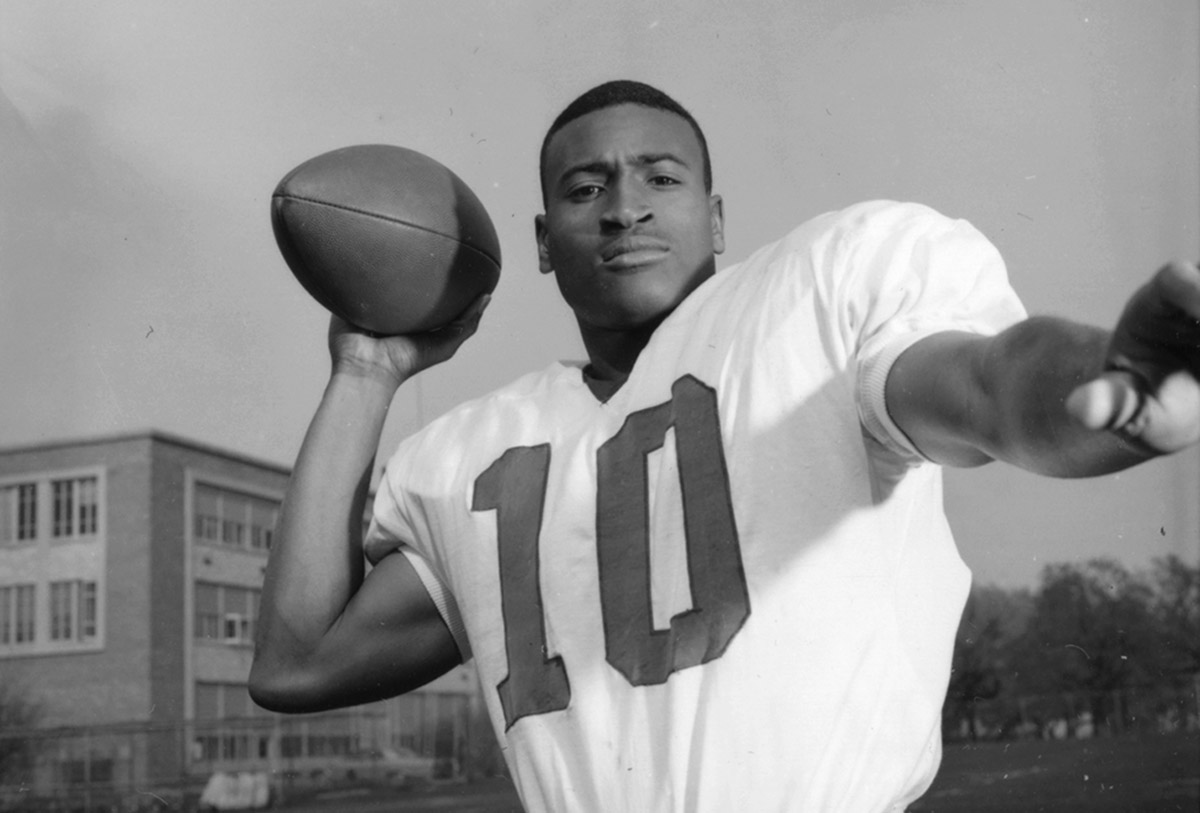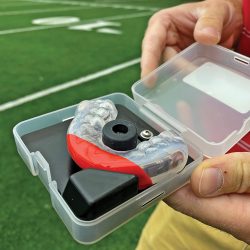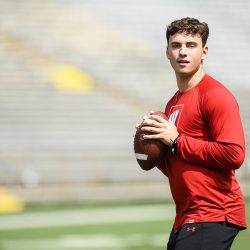History in Their Own Words
A project documents the UW’s pioneering black athletes

Former Badger football player Lewis Ritcherson, Jr. ’70 (pictured in 1967) spoke with campus historians. Courtesy UW-Madison Archives S16987
In the years following World War II, African American athletes joined UW teams in larger numbers, and for decades, they were the most visible minority students on campus. But they often faced obstacles and discrimination.
Many athletes’ stories went untold until the UW–Madison Archives’ Oral History Program began documenting their experiences, making them available for future historians.
“A project like this helps to flesh out the history of the University of Wisconsin,” says Gregory Bond MA’99, PhD’08, MA’14, who is leading the effort with Troy Reeves, head of the program, which has collected more than fourteen hundred interviews on UW-related topics.
The seed for the effort was planted when Bond wrote his dissertation on Jim Crow and sports in America. As a student working at the athletic department, he helped to create a website featuring the first African Americans to compete on Badger teams. A few years later, he and Reeves began recording the experiences of African American athletes and coaches. Their initial effort included interviews with Lewis Henry “Les” Ritcherson, the UW’s first African American assistant coach, and his son, Lewis Ritcherson, Jr. ’70, a highly touted quarterback from Texas who played for the Badgers.
The interviews cover life on a predominantly white campus. When the younger Ritcherson first arrived during the tumultuous 1960s, the UW had only two hundred black students. He describes division between white and black players in the locker room, and notes that some white students did not want to sit or study with black students. “In the South, people will tell you to your face what they think or how they feel, [but] when I came here, it was kind of a little bit more subtle,” he said during the interview.
Ritcherson was frustrated when he was benched for throwing an interception during his first game as starting quarterback. He saw little playing time afterward, despite the white teammate who replaced him making similar errors. “You better not make a mistake,” he says that he and his African American teammates came to realize. “If you make a mistake, you might not get back out there.”
Support from the Ira and Ineva Reilly Baldwin Wisconsin Idea Endowment and UW Libraries has given the project new life, but Bond and Reeves are facing the harsh challenge of time. Bob Teague ’50, one of the first African American starters for the football Badgers, died in 2013, and Welford Sanders ’71, MS’74, the first African American member of the UW’s fencing team, died last year.
Published in the Spring 2016 issue



Comments
No comments posted yet.